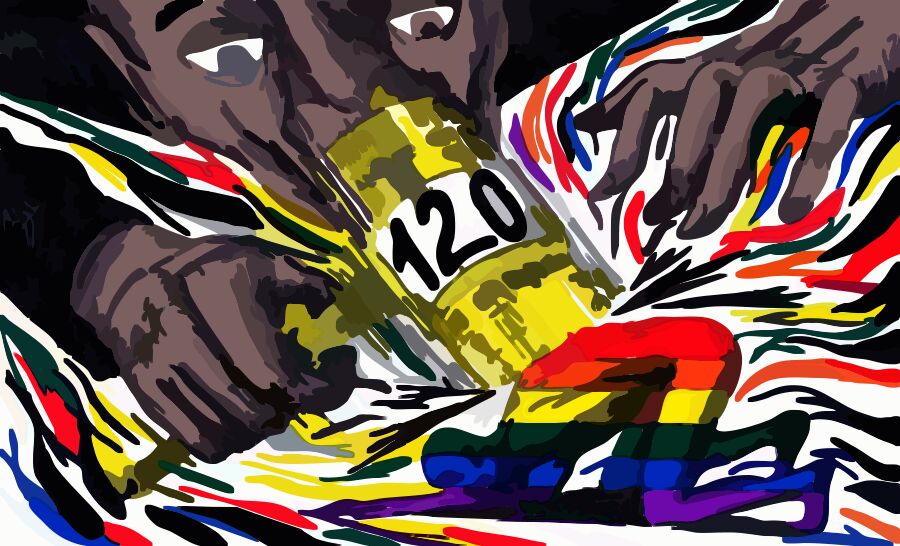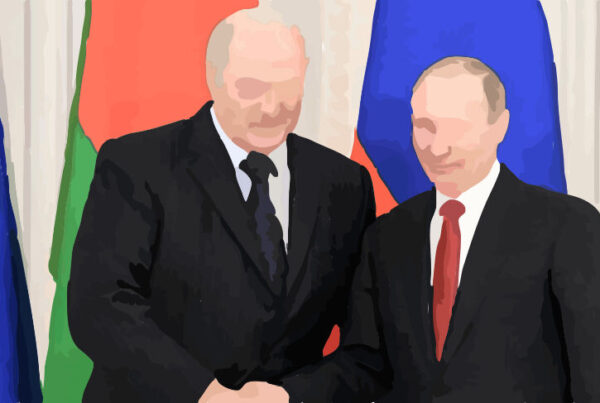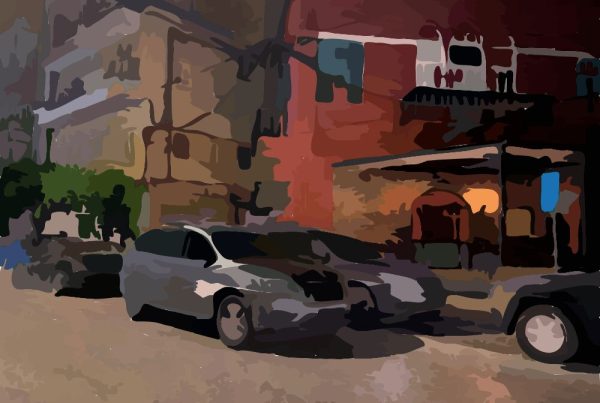Last year, a month after the Russian institutions approved the new law “against propaganda of non-traditional relationships”, other countries of the former Soviet Union announced that they would put similar measures on the table. After Belarus, Uzbekistan also wants to go down the road of banning “LGBT propaganda”.
In a draft law which regulates information in a broader sense in the country, it is prohibited to publish material that ‘promotes’ pornography, suicide and ‘unnatural same-sex relationships’, and an ‘abuse of freedom of speech’ is called for when information on the same subject is prohibited.

© Illustration by Майкл Скарн / Медиазона
Currently, Uzbekistan already has a law that punishes sexual intercourse between men with imprisonment up to three years. According to data provided by the (governmental) Centre for Human Rights in Uzbekistan, in 2021 36 men have been convicted for “sodomy”. Of these, 25 received a prison sentence. The number of arrests is increasing. According to the data from the Ministry of Internal Affairs, it is the highest figure since 2016.
Sometimes, depending on the family’s financial means, a sentence can be avoided by paying a bribe to the police.
There are reports of police torture and actions specifically targeting LGBT groups, and it could well be that corruption is the only reason why some police officers arrest homosexual people.
An investigation conducted by the Russian independent news website Mediazona shows how gay Uzbek men are thus already forced into semi-clandestinity, living through the dread of being subjected to the so-called “conversion therapies” by their families on one side and hiding their sexual orientation on the other.

© Illustration by Майкл Скарн / Медиазона
The Uzbeki gay community too has its meeting and dating apps. However, on these chatrooms people often meet undercover police officers, or people who “simply” want to blackmail someone by outing them in an extremely conservative society. As a result, many youths had to leave the country after the pressure (and threats) often coming from their own families, acquaintances or after they saw videos created by homophobic people had been leaked.
Yuri Yoursky, coordinator of Ecom (Eurasian Coalition for Health, Rights, Gender and Sexual Diversity), a non-profit organization supportive of the LGBTQIA+ community in Eastern European and Central Asian countries, says that change, on a legal level, can only happen if the removal of homophobic laws can be used as a ‘trade-off’ with more ‘liberal’ countries.
Currently, despite 15 years of international pressure on Uzbekistan, the situation appears to be getting worse.
Alessandro Garzi
translation by Alessia Florimo
©2023 Il Grande Colibrì
Cover Image: Rendition on illustration by Майкл Скарн / Медиазона




